THE HISTORY OF PORTABLE SANITATION IN AUSTRALIA
Australia has long been regarded as a leading nation on the global stage, known for its modern cities and home to some of the world’s most stunning natural wonders and unique wildlife. Australia is the only country that is also its own continent!
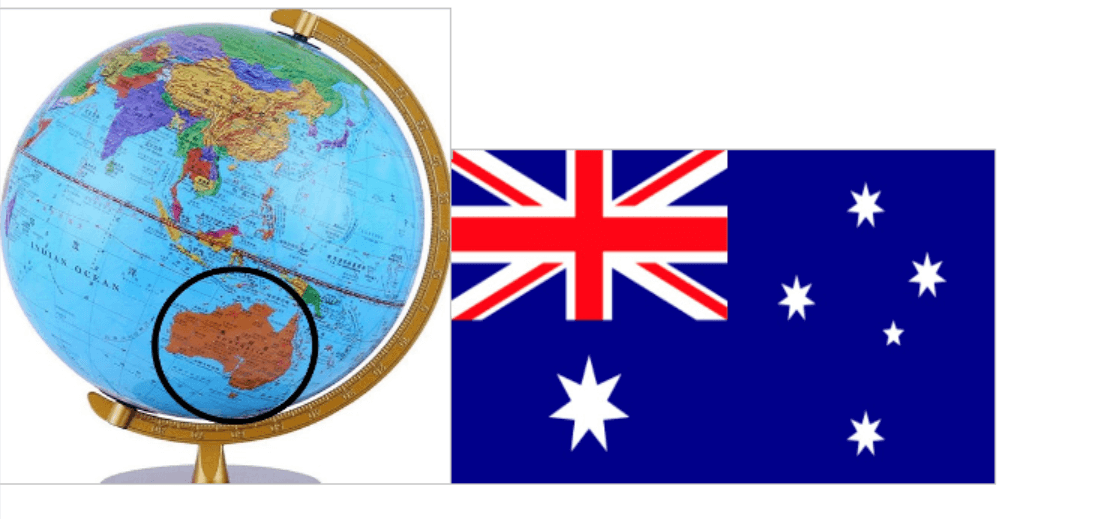
Australia’s geographic location in the world has affected the growth and advancement of technology since its founding. Here are some examples that illustrate Australia’s relative position in the world (Note: these distances are straight line so depending on transportation methods, actual distances would be greater):
-
Perth, Australia (Western Australia) to New York City (Eastern USA) …. 11,500 miles
The maximum travel distance between the 2 countries.
-
Sydney, Australia (Eastern Australia) to Los Angeles (Western USA) …. 7,500 miles
The minimum travel distance between the 2 countries.
-
Sydney, Australia to London, England (straight line distance) ……………10,500 miles
Shipping routes and distances would be significantly longer.
As a result, new products are often slow to reach Australia and are expensive due to transportation costs. As a result, Australian industry frequently opts to manufacture products locally. Portable restroom manufacturing in Australia is an excellent example of this reality.
EARLY HISTORY
The story of portable sanitation in Australia cannot begin without sharing the proper name for toilets in this country – “dunny.” A “dunny” is a slang term for a toilet, an outhouse, or a portable restroom. According to the Australian National University, the word comes from the British dialect “dunnekin,” meaning “dung” plus “ken” (house). The university further states that “the word was first recorded in the 1930s, but ‘dunnekin’ is documented in Australian sources from the 1840s.”
The earliest evidence of portable sanitation in Australia is similar to that in most parts of the world – portable chairs or boxes with pails or bags to collect the waste. These “portable toilets” were most popular for camping trips and outdoor adventures. With its longtime political and governmental ties to the United Kingdom, Elsan toilets, created by the British in World War II also had an influence on the development of similar units in Australia. Here is an ad for the “Sanary Seal Portable Toilet Unit” from 1946:
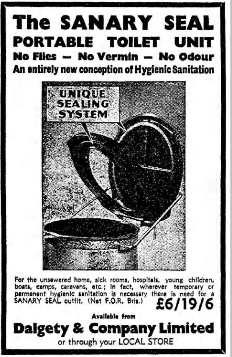
The first evidence of portable restrooms for rent in Australia is documented in “The Age” Newspaper from Melbourne on April 27, 1973:
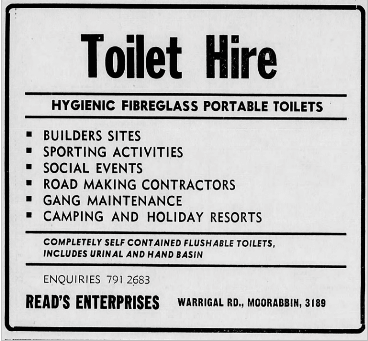
Notice that these are “fiberglass portable toilets” and are “completely self-contained flushable toilets, includes urinals and hand basin.”
The contention that Read’s Enterprises was the first company to offer portable toilets in Australia is supported by the “The Age” article in Melbourne from March 22, 1978:

GROWTH OF THE HIRE (RENTAL) INDUSTRY IN THE 1970s
As construction and home building began to grow and expand, the need for rental equipment (“hire equipment” in the local vernacular) increased dramatically. In the 1960s, there were various state rental associations in each of Australia’s six states – Queensland, New South Wales, Victoria, Tasmania, South Australia, and Western Australia. The first Hire Convention was held in Sydney on October 12, 1968. Due to continued growth in building and construction, the Hire and Rental Industry Association (HRIA) was formed as a national association in 1973. HIRA helped to educate and increase demand for portable sanitation equipment throughout the country.
EARLY PORTABLE RESTROOM COMPANIES
ABC HIRE COMPANY
Read Enterprises organized portable restroom rentals under their subsidiary, ABC Hire Company. Here is an ad from “The Age” Newspaper on July 9, 1977:
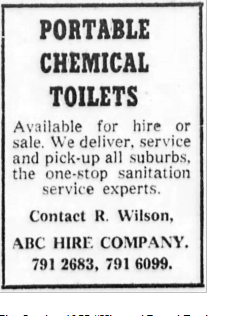
The October 1977 “Hire and Rental Equipment News” features an ABC Hire unit on display at the Hire and Rental Industry Association Annual Convention.
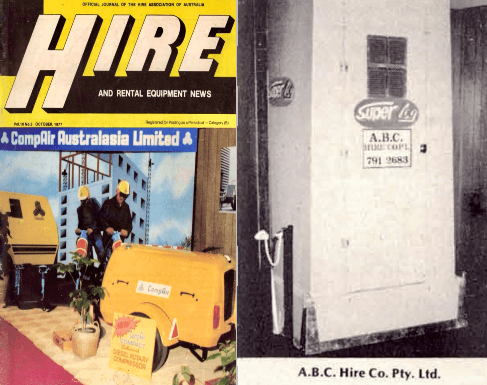
MERLIN SYSTEMS and MERLIN FIBREGLASS
Another early Australian portable restroom company, Merlin Systems featured their own manufactured unit, the M.F. Mobile Toilet.
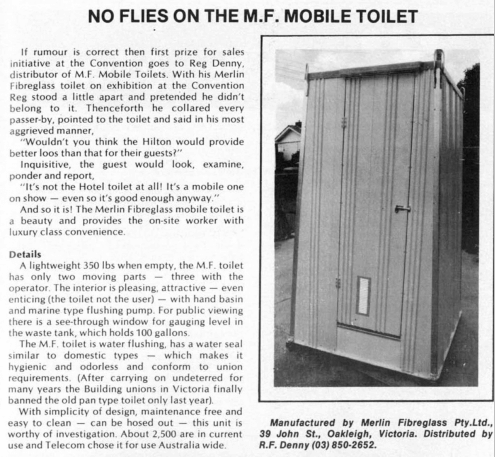
SANI HIRE

Richard Wilson, the owner of a painting company in 1978, saw the opportunity for portable restrooms in the Sydney area after observing the lack of proper facilities on construction sites. According to an article in “The Sydney Morning Herald” on September 13, 2007, Richard states that “he saw a niche market” and determined that “there’s a chance here!” He recalls, “I bought a mould of a portable toilet in America, and that’s how I got started.” After establishing the business in Sydney, Sani Hire expanded to Melbourne (some 550 miles away). The motto of the family firm is: “Your business is our business.”
Here is an excerpt from “The Sydney Morning Herald,” December 5, 1982, where Sani Hire has fiberglass units (standard at that time) for a horse race at Appin.
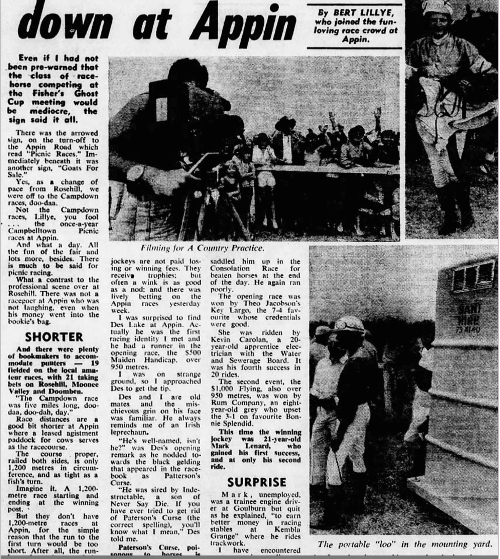
Today, Jay Wilson runs the company, and Sani Hire continues to grow and expand.
BULLEEN HIRINGS / ROYAL FLUSH / SUPER SAFE HIRE
Brain Hankin, an electrician, started Bulleen Hirings in Bulleen, Australia (Melbourne suburb) in the mid-1970s renting temporary power poles for building sites. He added portable restrooms and storage facilities to his product offerings in late 1978-79. Bulleen Hirings joined the PSAI in 1980 to further improve knowledge of the industry and best practices. In the Year End 1980 PSA Newsletter, he wrote a letter in which he stated that he had planned to attend the 1980 PSAI Convention in Las Vegas but was unable due to business reasons. He stated that he was planning to attend the San Antonio Convention in 1981. Further, he was planning “to call upon some members in the course of his family’s travels through California, Colorado, and Texas.”
In 1987, as a result of ill health, Brian sold the company to Phil Torney. Phil wanted to improve the standards and requirements for portable restrooms on construction sites. He made the decision that a toilet could not be rented from them without including service. To this end, the name was changed to ROYAL FLUSH TOILET HIRE. The business moved to a new facility where servicing, repairs, and cleaning could all be carried out more efficiently. Royal Flush continued their PSAI Membership, and the company was featured in the September-October PSAI in Action Newsletter below:
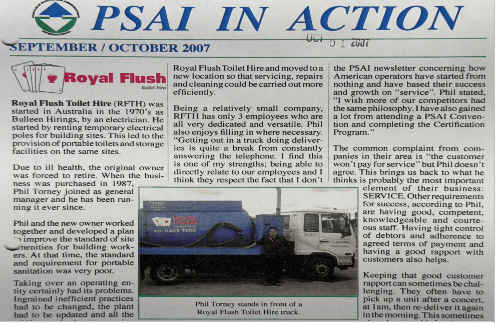
In 2021, Royal Flush became a part of Super Safe Hire.

RENT-A-LOO / PRESTIGE PORTABLES
Began in 1979, this company entered the marketplace with a distinct competitive advantage – the experience of its founder, Gordon Edsen. Here is a brief overview of this pioneer in the Australian hire industry …
GORDON EDSEN
Born in England in 1937, Gordon came to Australia and began working in 1964 with Silverwater Plant Hire. Silverwater was a subsidiary of a building company and Gordon developed the interest, the skills, and the passion that led to a lifetime of success in the hire industry.
In 1966, Andy and Neville Kennard of Kennard Hire attended the American Rental Association (ARA) Show and saw the need for such an organization in Australia. They contacted Gordon, and with his help and support, the NSW (New South Wales) Hire Association was formed in 1968 with Neville Kennard as President and Gordon Edsen as Vice-President. In 1970, the Hire Association of Australia was formed, and Kennard and Edsen are elected to the same positions. (Gordon is in the center of the picture below.)
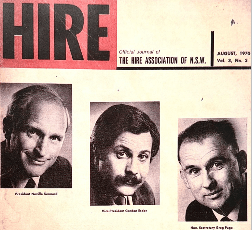
In 1978, Gordon’s longtime Hire Association friends, Neville and Andy Kennard, presented an offer to enter into a partnership in their Shed Hire business, which offered portable toilets among other products. Branding the portable toilet business “RENT-A-LOO,” Gordon began to expand the business. In the May 1995 “Hire and Industry Quarterly,” Gordon states that “I must have been one of the first hire businesses to install a computer when I discovered that I had about 700 sheds being hired out on a long-term basis to building sites, making invoicing a nightmare.”
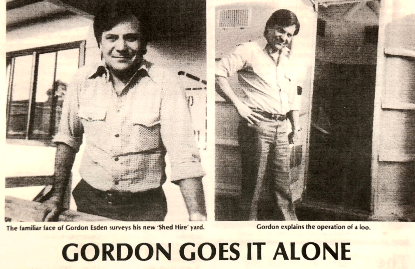
As Rent-A-Loo continued to grow, a new location was added in 1983 in Newcastle – some 100 miles north of Sydney. Believing in the value of associations and always looking for new ideas and information, Gordon and Rent-A-Loo joined the PSAI in 1986.
In 1987, the company changed its name to PRESTIGE PORTABLES and in 1988 another location was added in the state of Queensland. Gordon became ill in 1992 and had to curtail some of his activities. He recovered and in 1994, Prestige Portables was sold to longtime hire company, Coates Hire. Gordon became a consultant with Coates. As of the date of this 1995 article, Gordon had served as a committee member of the Hire Association for 27 years! He was quoted in a 1971 Hire Magazine as saying his motto was “Don’t buy it, hire it.” In another similar magazine he had listed his hobbies as “sailing and hire.” Truly, Gordon Esden believed in the value of associations.
FUN FACT: On the subject of associations, the PSAI shows record of the following early “pioneers of our industry” that were members of our association:
-
Bulleen Hirings – Bulleen, Australia – Attention: Brian Hankin - 1979
-
Hire Kingdom Pty Ltd – Sydney, Australia - Attention: Allan Rutherford – 1979
-
Port-A-Loo – Sydney, Australia – Attention: Jan Roebuck – 1984
-
Stephen Donnelley Hire – Wollongong, Australia – Attention: Stephen Donnelley – 1986
-
Rent-A-Loo – Prospect, Australia – Attention: Gordon Esden - 1986
FORMIT PORTABLE TOILETS
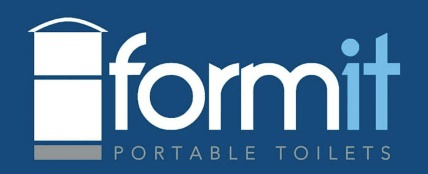
In 1983, Formit began manufacturing portable toilets on the Central Coast of New South Wales – north of Sydney. With the growth of the portable sanitation industry in Australia, coupled with the distance and expense of importing units, a local manufacturer was needed. Through the years, Formit has evolved its designs for portable units as the needs of the market have changed. From ADU (Australian Disabled Units) to water tanks and trailers, Formit continues to serve the Australian marketplace. They proudly note that among their long-time customers are Kennards Hire and Coates Hire.
SPLASHDOWN
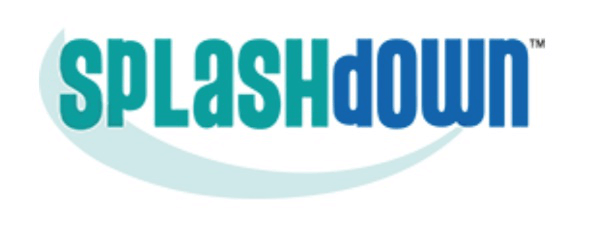
Glenn Preusker, a licensed plumber, created Splashdown in 1986. Specializing in the event industry, the company has provided units at a variety of locations and venues throughout the years. Beginning with small, local events, as the company steadily grew over the years, the size of the events grew proportionately. The Melbourne Commonwealth Games in 2006 and the Formula 1 Grand Prix of Australia in 2013 are just two of the many events that Splashdown has successfully assisted with and features on their website.
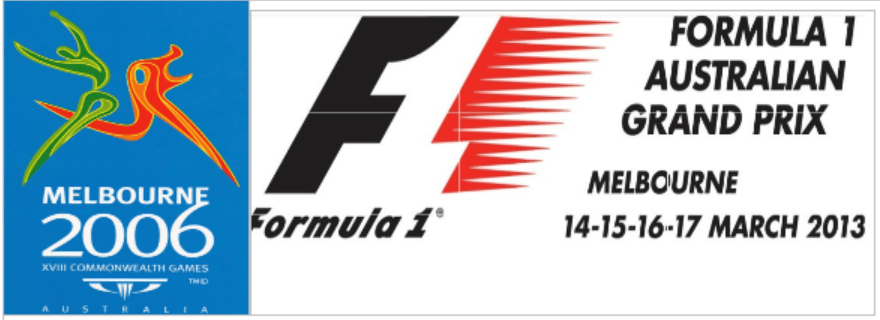
Perhaps the most famous publicity given perhaps any portable restroom in the world came in 2006 with the release of the movie “KENNY.” Splashdown’s units, staff, and stories were the basis for this movie which featured a portable restroom service technician named Kenny Smyth. His adventures take him from his job in Melbourne to the Pumper Show in Nashville, Tennessee. This is a “must see” for everyone in our industry.
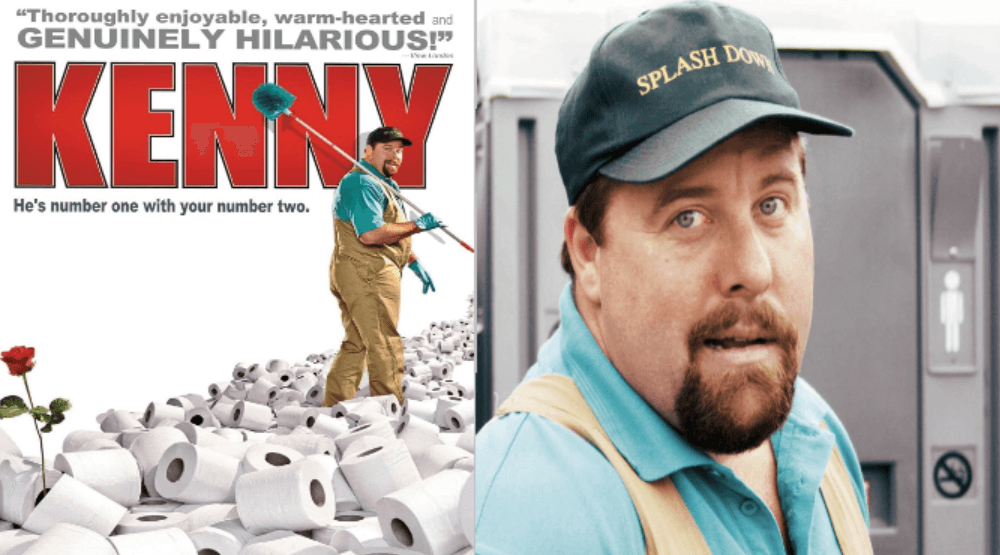
VIKING RENTALS
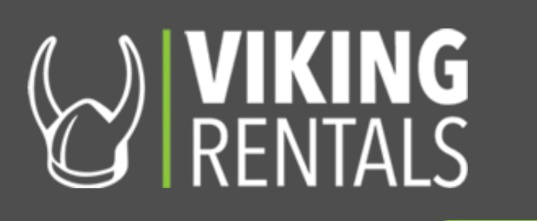
In 2006 Jim Noort founded Viking Rentals with a service truck and 130 portable restrooms. In an article in PRO Magazine of March 2012, Jim shares his inspiration for starting a portable restroom company:
“I was building a house and had to order a restroom for the construction workers. I was pretty disgusted with what they presented. It was terrible, but rather than complain about it, I saw an opportunity. I started calling builders and asking them about portable restrooms. Everyone was disgusted.”
Within 6 months, Jim Noort founded Viking Rentals. Through the years, they have grown by providing top-notch service as well as the strategic acquisition of competitors. Today, Viking has locations in 12 major Australian cities and owns thousands of units.
FINAL THOUGHTS
The portable sanitation industry grew in Australia through the foresight of many early companies who saw that developing a “home grown” industry would be more advantageous than importing equipment from abroad. Hire associations were pivotal in the development and sharing of best practices and standards for this new industry in the 1970s. As the industry developed, so did the level of innovation and development of new products and services. Today Australia is one of the leading countries in our industry.
